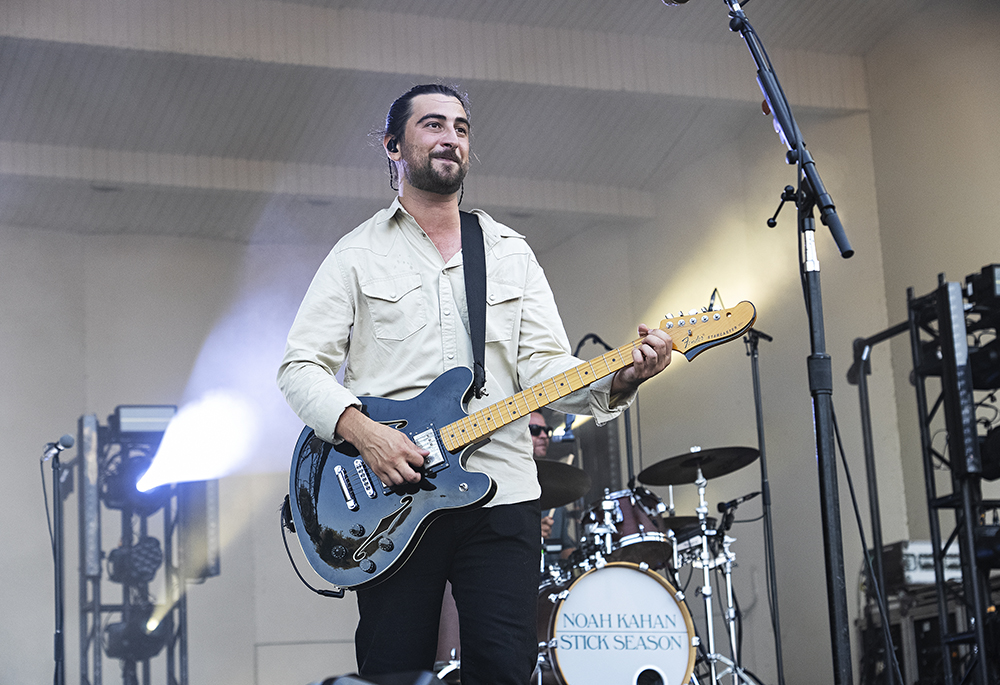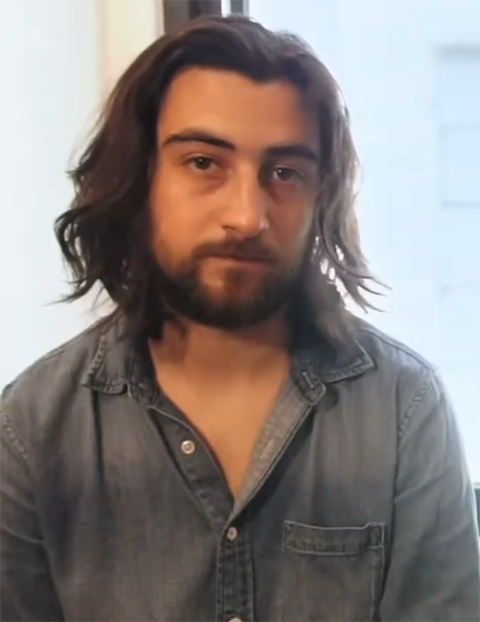
Noah Kahan performs on day one of the Lollapalooza Music Festival, Aug. 3, 2023, at Grant Park in Chicago. (AP/Invision/Amy Harris)
My heart skipped a beat. I held my breath, entering a moment of pause — a moment of total awareness — as my brain processed and my heart massaged a rush of emotions. I will never forget the first time I listened, really listened, to the lyrics of Noah Kahan, a once-in-a-generation songwriting talent.
Noah Kahan (pronounced "con") has been on the rise as one of the most compelling and influential singer-songwriters over the past few years, but especially in this last year. Having grown up in rural Vermont and then New Hampshire — a New England boy at heart — he was raised by a Jewish father who taught him to play guitar and a Christian mother who taught him to write. After high school, he was accepted to Tulane University, but decided to not attend college in order to focus on his music career.

Noah Kahan, in a screenshot from a 2019 Popdust video about his debut album (Wikimedia Commons/YouTube/Popdust, CC BY 3.0 deed)
Since then, Noah has been writing, performing, traveling and touring all over the country — and now the world — putting his whole, embodied self into the songwriting process and inviting the embodied participation of the listener. The result is music so connective that I feel I simply must refer to him by first name in this essay; the cyclical invitation of embodied participation between Noah and his listener inevitably creates a friendship where a first-name basis is deemed appropriate.
Noah got his first break by opening for Milky Chance at age 19 and signed with Republic Records in 2017, under which he has released three albums. The massive success of his 2022 album, "Stick Season," earned him a Grammy nomination for best new artist. He lost the award to R&B singer Victoria Monét, but cemented his position as one to watch in the next few years.
Noah's folk-infused pop style offers a refreshing, soothing introspectivity; he skillfully takes his listeners on an emotional journey in each song, allowing us to jump into the song with him and seek a glimpse of the reflection — and then the healing — that Noah works through in his art. His vulnerability, radical and compelling, draws the listener in. One can't help but slow down to enter into his music, almost as if taking a mini-retreat in the midst of our fast-paced, globalized society.
Advertisement
I attribute the explosive rise of Noah's popularity to his unapologetic openness and raw authenticity. He admits to struggling with anxiety and depression throughout his life, and is open about the fact that he has been seeing a therapist since he was a child. In this age of social media portrayals of perfection, such connectedness to his own wounds — to his own self and his own vulnerability — is restorative. Noah's ability to attune to his personhood, in all his imperfections and shortcomings, has a softening effect on the listener. Through his songs, Noah is able to transcend physical locations and boundaries, offering people spaces of healing through his lyrics.
The lyrics of Noah Kahan are notoriously specific to his life experiences, typically involving some aspects of New England, his family, romantic relationships and his dogs. He does not hold to generalities in order to be relatable, rather it is the specificity in his emotional and spiritual location that makes him so engaging. In this way, his songs mirror the parables told by Christ in the Gospels, offering reflections and lessons to the listener rooted in particular narratives that are specific and local.
His songs mirror the parables told by Christ in the Gospels, offering reflections and lessons to the listener rooted in particular narratives that are specific and local.
These "song parables" communicate universal messages rooted in Noah's own self-awareness. As a result, the listener is able to more clearly look at their own woundedness; different than Noah's, but no less important. His vulnerability leads to a consciousness of authenticity that inspires the authenticity of others to flourish. Noah's lyrics thus motivate listeners to seek wholeness in their own selves.
It is his parabolic writing that ultimately offers liberation to the listener. In seeking liberation, one needs a safe space to acquire the tools and resources to feel whole again, and Noah grants this.
For example, in the song "Call Your Mom," he comforts a friend in need, saying, "Don’t let this darkness fool you/ All lights turned off can be turned on/ I'll drive, I'll drive all night/ I'll call your mom." Such emotional safety creates a sacred space for the listener to occupy — with their whole selves, woundedness and all — and embark on the journey of healing and liberation. Personally, his songs have healed me in ways I didn't even know I needed.
"Stick Season (Forever)" is out now — and if you let it, it might just soften your heart.







